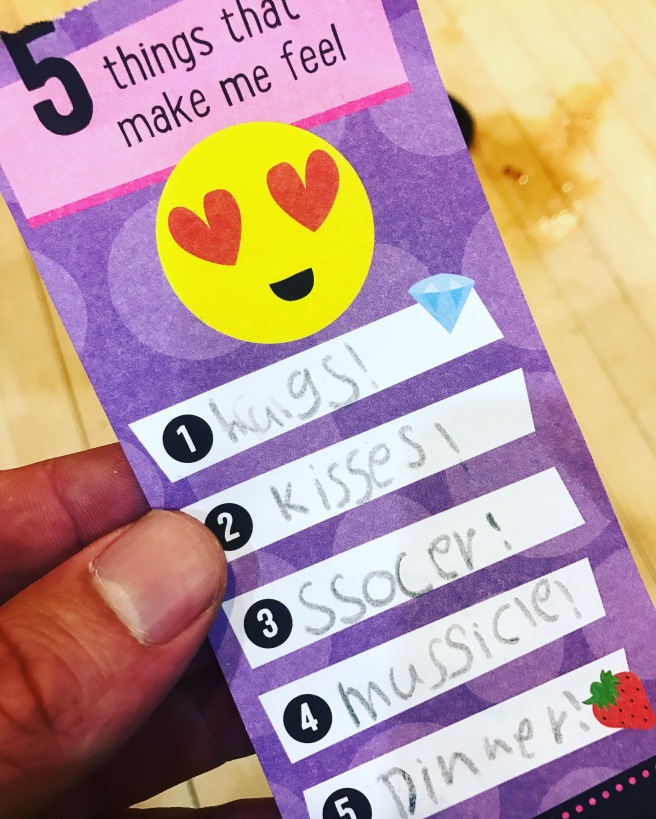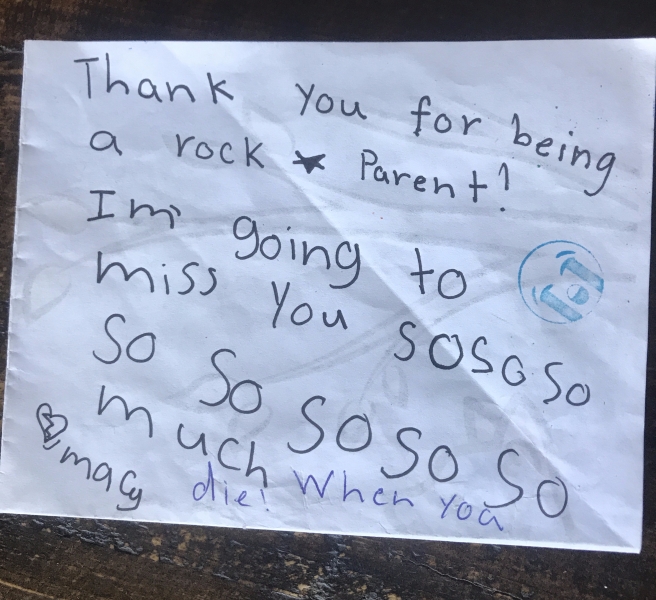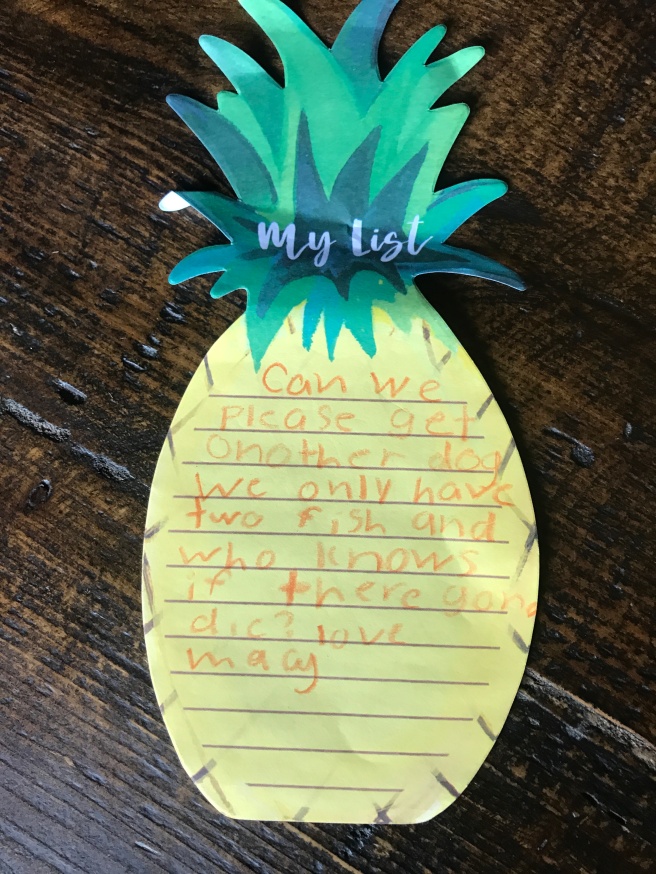[Editor’s Note: Pulitzer Schmulitzer! is where we count down our favorite Pulitzer Prize winning novels for fiction according to the unpredictable and arbitrary whims of yours truly. To learn how Pulitzer Schmulitzer! started and read about the methodology or complete lack thereof behind the rankings, look no further than right here. If you want to see what we’ve covered so far, here you go. Now, on to the countdown.]
“Forty is the old age of youth; fifty is the youth of old age.”
-Victor Hugo
“The face you have at age twenty-five is the face God gave you, but the face you have after fifty is the face you earned.”
-Cindy Crawford
Sometimes I find it tough to read my 7-year-old daughter Macy. She’s mostly happy to see me and I know she loves me, but as I often tell people when describing her, she skews happy. She loves everything. For example, she recently found a note pad where you could list five things that you love. Macy’s list, in order (and spell corrected):
- Hugs!
- Kisses!
- Soccer!
- Musicals!
- Dinner!

It is interesting to note that like us here at Pulitzer Schmulitzer!, Macy is a big fan of the exclamation point. And it is also interesting, maybe more so, to note that although “Dinner!” made the list, “Dad!” did not.
So I was very excited Sunday morning when Macy, after working very diligently on a drawing at the dining room table while I read the paper, handed said drawing to me and said, “I made you a card.” I was even more excited when I read it because it said: “Thank you for being a rock ★ parent! I’m going to miss you so so so so so so so so so much. Love Macy.”
Pride in my own parenting skills swelled within me. I looked at my youngest lovingly and we had the following interaction:
Me: That is so nice Macy. Thank you. (Quick hug ensued leading to more pride swelling). But why are you going to miss me?
Macy: What?
Me: (Showing her the note) You said you were going to miss me so so so so so much, but I’m not going anywhere.
Macy: (Taking a closer look at the card.) Oh, I forgot something.
At this point, Macy took the note back, grabbed a pen, and quickly started writing. It took only a few seconds before she handed me the now augmented note that read as follows: “Thank you for being a rock ★ parent! I’m going to miss you so so so so so so so so so much … when you die! Love Macy.”

Although I was still happy that she was going to miss me, I was understandably a tiny bit conflicted about the prerequisite. It was a little morbid. But in her defense, Macy has been a little preoccupied with death these last few months and I think I know why. First, she recently asked if she could have a fish tank. So, over my objections, we took her to a fish store and brought home a five-gallon fish tank, a miniature castle, some foliage, and three little guppies – Fire, Joey and Sparkle.
All was good with the world for about 16 hours until she woke up the next morning and found Joey lying dead behind the castle. Tears flew from her eyes immediately and she decided that Fire had killed him. I’m not totally sure what Sparkle’s alibi was, but Macy was convinced that Fire was a bad apple. She was inconsolable.
Actually, I take that back. She was somewhat consolable and started to pull it together until I retrieved Joey from the tank and headed to the bathroom to flush him down the toilet at which point we had the following interaction:
Macy: What are you doing with Joey?
Me: I’m going to flush him down the toilet.
Macy: NOOOOOO!!!!!!!!!!! (Tears flying out of eyes once again. Now actually inconsolable.)
Me: What would you like to do with Joey?
Macy: BURY HIM!!!!!!
So shortly thereafter, Macy and I were standing outside in the yard holding a fish funeral for Joey. We buried Joey in a small Kleenex box, his little guppy body laying on a bed of tissues. We said a few words, which was hard given the limited time we knew each other, but it was sweet. And as the last spoonful of dirt covered Joey’s casket, Macy said: “Can we get another fish?”
The second reason Macy has been fascinated with death recently is that I turned 50 this summer. I can barely believe I’m that old, but to my seven-year-old, it is inconceivable. (And you just thought of The Princess Bride). She’s just learning to count that high. In her mind, the difference between 50 and the age of the universe is not that much. Like 20 years.
So because we had many celebrations around my birthday, she was acutely aware that I’m the oldest one in the family that means, of course, that I am going to be the first one to die. And my death will be followed by, in order, Gigi, Sam and Lily thereby leaving Macy the last one standing. The first time she told me this, I was trying to get a sense of whether this chain of events bothered her or comforted her. I’m still not totally sure. But what I was sure of was that I didn’t want her to think that was necessarily how things were going to turn out, so I said something to the effect of, “you never know what’s going to happen.”
I’ll get back to that story in a minute, but first we must detour to Foreign Affairs by Allison Lurie, the 1985 Pulitzer winner that comes in at #48 on our countdown. Foreign Affairs tells the story of Virginia Miner (Vinnie), a fifty-four-year-old spinsterish professor at Corinth University who specializes in children’s literature. She loves travel and is off to London (which she also loves) for a six-month research trip with plans to write a book about playground rhymes. Her mood, however, is a little soured because a critic named L. D. Zimmern recently trashed her work in a nationally circulated magazine.
Also bringing her down is Chuck Mumpson, a sanitary engineer from Tulsa, Oklahoma and her seatmate on what would otherwise be a pleasant flight, who proceeds to accost her conversationally. Although currently unmarried, Vinnie couldn’t be less interested. She’s had her share of affairs and even a brief marriage, but at this point in her life, Vinnie has stopped believing that falling or being in love is a good thing. So to silence Chuck, she gives him a copy of Little Lord Fauntleroy. Unfortunately, this plan ultimately backfires when the smoking, drinking and generally loudly American Chuck contacts her in London. It turns out he has been inspired by Little Lord Fauntleroy to want to trace his own family history. Vinnie slowly becomes involved with his project, and then with him.
Meanwhile, in a parallel story, one of Vinnie’s young colleagues, Fred Turner, has left his wife, Roo, at home for his own sabbatical in London, where he is researching John Gay. In chapters that alternate with those recounting Vinnie’s triumphs and tribulations, we learn that Fred and Roo have quarreled and he fears the marriage is over. He consoles himself with the affections of a beautiful and aristocratic television actress, Lady Rosemary Radley, who gives him the entree into London high life. The exquisite but not so young Rosemary has never managed to have a really successful love relationship—though she is not resigned to this, as Vinnie is. Ultimately, these two stories come together when, quite by accident and with the encouragement of Chuck, Vinnie becomes an emissary for Fred’s estranged wife. What makes this favor more challenging for Vinnie is that Roo’s father is none other than the nefarious critic L. D. Zimmern.
I won’t give away the ending, but suffice it to say that Vinnie’s relationship with Chuck opens her eyes to the fact that she has many years to live and a lot to experience, including love. Literate by nature, Vinnie comes to the realization that literature may have unintentionally betrayed her. “In the world of classic British fiction,” she reflects, ”almost the entire population is under fifty, or even under forty – as was true of the real world when the novel was invented.” Even today, in most novels ”it is taken for granted that people over fifty are as set in their ways as elderly apple trees, and as permanently shaped and scarred by the years they have weathered. The literary convention is that nothing major can happen to them except through subtraction.”
But in real life – or the “real” life of Vinnie – she has many years to live and much to experience. Why, therefore, she concludes, should she ”become a minor character in her own life? Why shouldn’t she imagine herself as an explorer standing on the edge of some landscape as yet unmapped by literature: interested, even excited – ready to be surprised?”
As one who is now near Vinnie’s age in the novel, I absolutely love this and appreciate what Alison Lurie as to say about getting older. Foreign Affairs offers a wry commentary on who we perceive ourselves as being and the sometimes jarring reality of who we are and how much we are constructed by other people’s perceptions of us. The book is witty, truthful (sometimes painfully so), intelligent, warm, humorous, and ultimately inspiring. Fast forward 30 years and I’ll probably suggest Macy read it.
However, it is currently above her reading level, so when Macy handed me back the updated note she had written, I did my best to translate the message. I told her that 50 isn’t that old and (fingers crossed) I have many years of life and living left to do. She didn’t need to miss me quite yet.
As an aside, what I really wanted to do but can’t because she is only seven, was go one level deeper and add that she shouldn’t be anti-death (although again I’m not sure she is). Death is in some ways in underrated. To be clear, I’m not talking about senseless death, or early death, or painful death; not the death of war, terror, cruelty, poverty, abuse, neglect, suicide, disease. But normal death is our admission fee for the privilege of life. It gives life urgency. It makes life worth living. And yes, graying hair and creaky joints are part of that fee. Our lives are finite — so, as we’ve discussed many times here at Pulitzer Schmulitzer!, we should live them with gusto.
But in the end that conversation didn’t happen and Macy’s takeaway focused on the uncertainly because “you never know what’s going to happen.” So I shouldn’t have been that surprised to find the following message scribbled a few days later on a pineapple note pad:


Glad to have another chapter. Always heartfelt with wisdom and originality.
“Life is a carnival of pain, heartbreak and wonder.”
-Bob Dylan
Thank you Jackie! It had been a while but this was a fun one. Love the Dylan quote!
Okay. What happened? Why did you abandon the project before you reached the top? I am wondering if it became impossible to complete because every year there is a new book and suddenly a shuffling has to take place. Or did you get bogged down because you were writing about books you didn’t really like that much so the joy was being swooshed out of you? Please carry on, at least do a ratings list for us to peruse. I enjoy your writing.